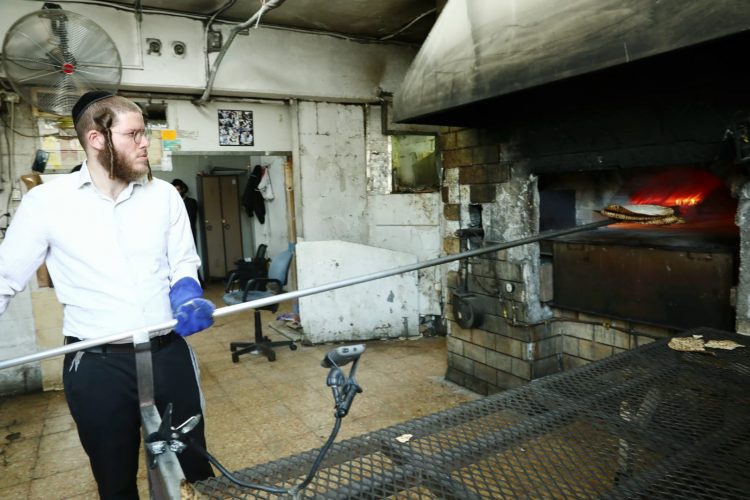People Are Still Working Hard Making Special ‘Shmura’ Matzah for Passover
Jerusalem, 17 April, 2024 (TPS) -- Matzah (unleavened bread) baking for the Passover holiday done by Vizhnitz Hasidim in Bnei Brak, Israel. Here they are hand making special matzah called Shmura matzah (watched matzah) because even the grains are specially watched when harvested and through to the time of baking.
This matzah is baked right up until the day before the start of Passover so that it will be fresh for the holiday, as opposed to the machine made square matzahs that last for years.
Any dough made for matzah must be baked fully within 18 minutes from the moment water is added to the flour. Anything that took more than 18 minutes is not kosher for Passover and is called “hametz,” from the Hebrew word that means “to miss” as in the maximum time allowed for baking was missed.
Hasidic Jews have a stringent tradition which prohibits adding any liquids to matzah after it is baked so as not to take any chance of is becoming hametz. This means they will not eat anything prepared from matzah meal (a flour made from ground matzah) like kosher for Passover cookies, or even, ironically, matzah balls.
Passover commemorates the Jewish exodus from Egyptian slavery. The Bible notes that the redemption came so quickly that the bread which the Jewish people baked for their journey did not have time to rise. Anything made from grains in any form other than matzah may not be eaten or even be in ones possession during the week ling holiday.
Meticulously prepared and adhering to ancient traditions, matzah holds significance not just as a dietary staple but as a symbol of heritage and resilience.
Passover this year begins Monday night April 22.
Vizhnitz is the name of a Hasidic dynasty founded by Rabbi Menachem Mendel Hager of Kosov, so they are also known as the Kosovo-Vishnitz. The sect was founded in the late 18th Century in Galcia, an area of Europe that now comprises southeastern Poland and western Ukraine.
Bnei Brak, April 17, 2024.
Gideon Markowicz/TPS


